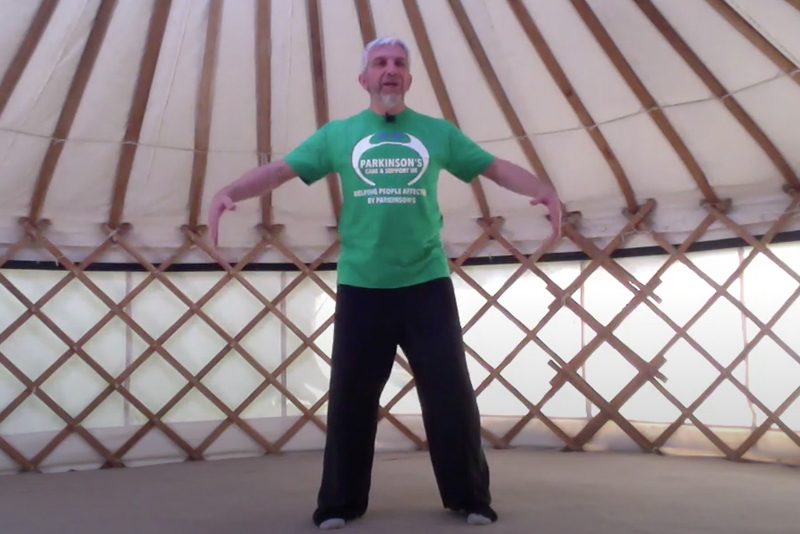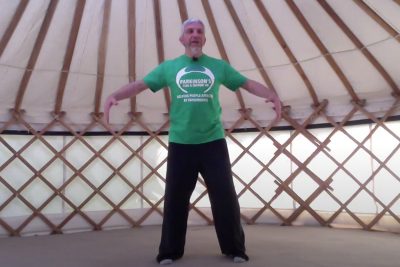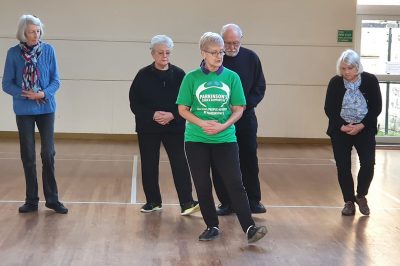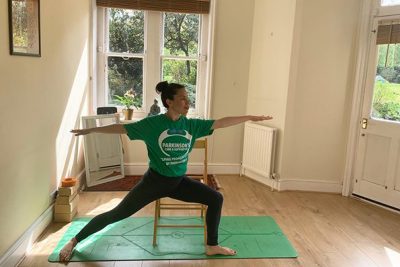Qigong Classes

Qigong is a natural way to keep fit, drawing on the classical philosophy of the Yin-Yang theory and basic theories of traditional Chinese medicine regarding channels and collaterals, guidance, and breathing. It is a powerful type of health exercise, which has been practiced for centuries by millions of Chinese people. Qigong is based on repetitions of very precise sets of movements, specifically designed to benefit health on many different levels.
Qi (pronounced ‘chi’) means ‘energy’ and Gong means ‘work’, so literally this means working your energy. It is like drops of water on a stone– it is not a quick fix, it takes time and patience. Qigong movements help to train the physical body to be strong, supportive and connect better. It promotes greater flexibility, an improved posture and it teaches one how to relax. The movements are perfect for people with Parkinson’s because they are simple, easy to learn, repetitive and strengthening.
Qigong exercises can improve body functions for people with Parkinson’s particularly in early or middle stages of the condition. Research has shown that Health Qigong exercise can significantly improve Parkinson’s Disease patients’ muscle hardness, functional walking capacity, hand-eye coordination stability, and balance.
Qigong helps to manage the psychological impact of living with Parkinson’s Disease. It also helps you to take back a level of control and to improve your quality of life whilst working with your own comfort zone with self– compassion to:
Qigong is easy to learn and enjoyable to do. Even a few minutes of practise can have an invigorating and rejuvenating effect. Regular practice brings about a deep strengthening effect for the whole body and its various systems (nervous, digestive, respiratory, skeleton-muscular, hormonal, gynaecological). Its ability to help in healing a large variety of chronic and acute injuries and illnesses has been the subject of various research programmes led by the Chinese medical authorities.
Remember, the aim of Qigong is to promote the movement of Qi (energy) in the body; this is done by opening certain gates and stretching and twisting energy channels. A key point in Qigong practice is relaxation and deep breathing, both of which are prerequisites to allow Qi to flow. The Deeper one practises, the more one can understand the purpose of each movement, allowing the Qigong practice to become even more enjoyable.




